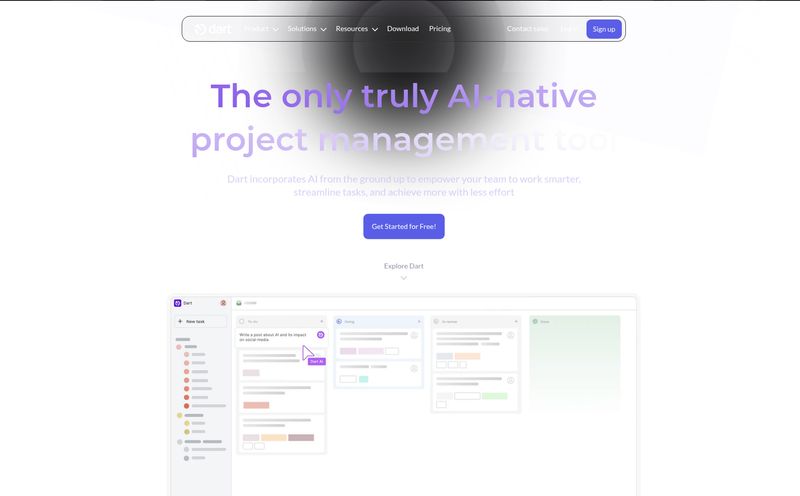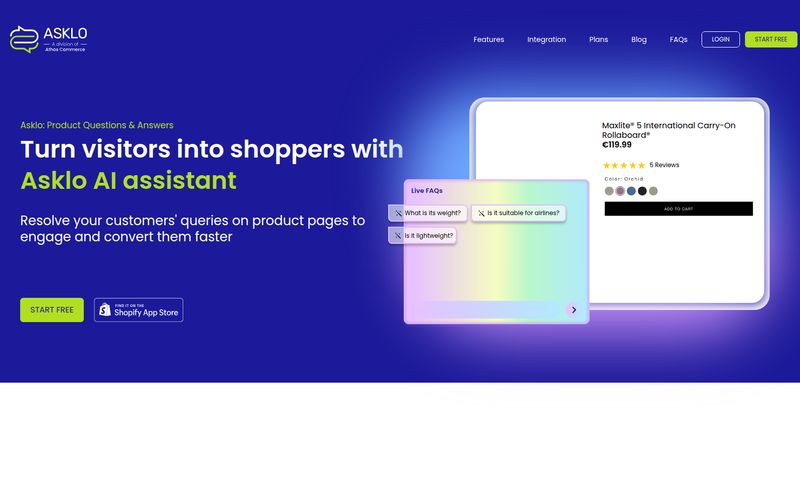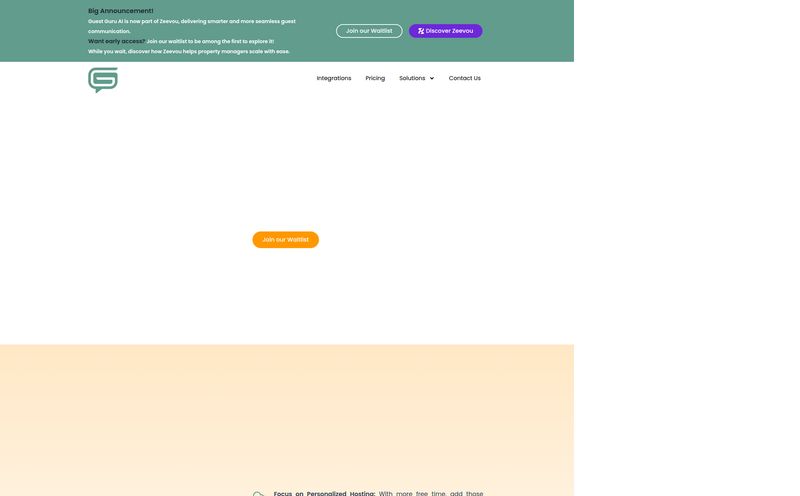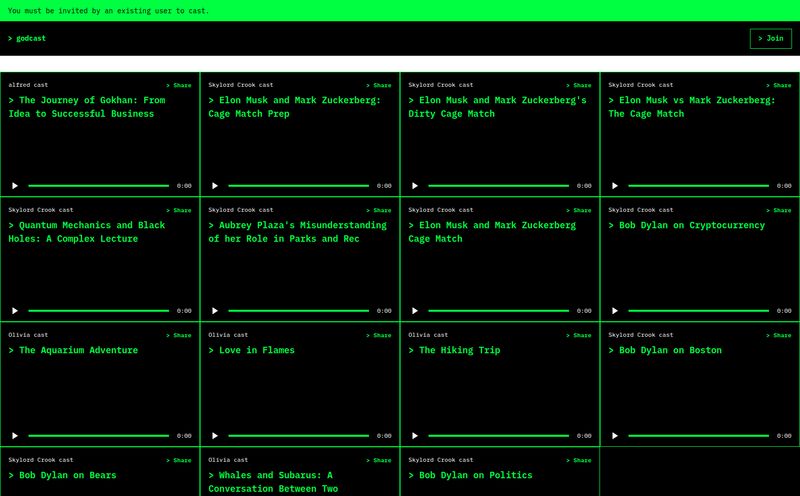We've all been there. Staring at a textbook the night before a big exam, willing the information to just… stick. You read a page, you nod, you feel smart, and then five minutes later, you couldn't recall a single fact if your life depended on it. My own personal Waterloo was a college biology final. So many terms, so many processes. My brain felt less like a sponge and more like a sieve.
For years, the gold standard for hardcore memorization has been the "memory palace," or the Method of Loci. It's this almost mythical technique used by ancient Greek orators and modern-day memory champions. You imagine a familiar place, like your house, and mentally 'place' the things you need to remember in specific locations. To recall them, you just take a mental stroll. Sounds cool, right? It is. But it’s also an incredible amount of work to set up. Until now, maybe.
I stumbled upon a tool called Fit Learn, which claims to be an AI-powered memory palace builder. It says it can create these complex mental structures for you in a click. An AI architect for your brain? Okay, you have my attention. As a guy who's deep in the SEO and trends world, I'm a sucker for new tech, but I'm also a huge skeptic. So I decided to take it for a spin and see if it’s the real deal or just another flash-in-the-pan app.
First Off, What's the Big Deal with Memory Palaces?
Before we get into Fit Learn itself, it's worth understanding why this method is so powerful. Our brains are ridiculously good at remembering places. Think about it. You can probably navigate your childhood home in your mind's eye with perfect clarity, right? You know where the creaky step is, which drawer the spoons are in, the smell of the hallway closet. That’s powerful spatial memory at work.

Visit Fit Learn
The Method of Loci hijacks this natural ability. By associating abstract information (like a historical date or a chemical formula) with a concrete location in your mental palace, you're giving your brain a much stronger hook to hang that memory on. It turns boring data into a story, a journey. The problem, as I mentioned, is the setup. It's tedious. It takes imagination and a lot of time—time that students and professionals rarely have. And that's the exact problem Fit Learn aims to solve.
Putting Fit Learn to the Test: An AI Architect at Work
So I signed up. The whole premise of Fit Learn is automation. You feed it your information—notes from a book, a lecture, a video—and its AI gets to work building a memory palace for you. It uses real-world locations, presumably pulled from something like Google Maps' API, to create the palace layout.
The core features are pretty straightforward:
- Automatic Palace Generation: This is the main event. You give it the data, and it builds the structure. In my tests, it was surprisingly quick. No more sitting with my eyes closed for an hour trying to mentally furnish a room with facts.
- AI-Powered Practice: This part is actually brilliant and, for me, one of teh biggest selling points. Fit Learn says it uses an algorithm based on the scientific principles of the 'forgetting curve'. That's a concept from psychologist Hermann Ebbinghaus that basically maps how we forget things over time. The app schedules your practice sessions at the precise moment you're most likely to start forgetting. It’s like having a personal memory coach who knows exactly when to nudge you.
- Flashcards & Progress Tracking: Of course, it has flashcards. But they're integrated into the palace. You 'visit' a location and review the card associated with it. The progress tracking is clean and gives you that little dopamine hit of seeing your mastery level go up.
The Good, The Not-So-Good, and The Reality
After playing around with it for a while, I've got some thoughts. It's not magic, but it's pretty darn clever.
What I Genuinely Liked
The sheer time-saving aspect is a massive win. It takes the most laborious part of a proven memory technique and completely automates it. That alone is huge. I also really appreciate that it’s built on actual learning science, not just gimmicks. The integration of the forgetting curve for spaced repetition is something you see in hardcore study apps like Anki, but combining it with the spatial element of a memory palace feels like a natural and powerful evolution.
Where It Falls a Bit Short
My main gripe, and it's a minor one, is the reliance on an external API for locations. This means you're limited to whatever locations are available through their system. You can't just use your own apartment in perfect detail unless it happens to be on the map. This takes away a little of the personalization that makes traditional memory palaces so strong. Also, the free plan is… well, it’s a teaser. A tiny one. It’s enough to see how it works, but you'll hit a wall almost immediately. You can't really use it for a full course or serious study without paying up.
And here’s the most important dose of reality: this tool won't learn for you. Its effectiveness is directly tied to your engagement. If you don't do the practice walks through your palace, if you dont consistently review the material, you won't remember it. Fit Learn builds the gym; you still have to show up and lift the weights.
Breaking Down the Cost: Fit Learn's Pricing Tiers
Alright, let's talk about the investment. Is it worth the cash? They have a few options, and I’ve broken them down in this simple table. For the most up-to-date info, you should always check their official pricing page.
| Plan | Price | Key Features |
|---|---|---|
| Free Beginner | Free | 1 memory palace, 3 chapters, 30 cards. Very limited. |
| Fit Learner | $11.99 / month | Unlimited everything. The full experience. |
| Life Learner | $8.25 / month (billed $99 annually) | Same as Fit Learner, but you commit to a year for a better price. |
My take? The Free plan is a demo, period. The Fit Learner monthly plan is perfect if you have a single, high-stakes event to study for—like the bar exam, MCATs, or a big certification. The Life Learner annual plan is the best value for lifelong learners, university students, or professionals who constantly need to acquire new knowledge.
So, Who Is This Tool Actually For?
I see a few groups getting a ton of value out of Fit Learn:
- Students: Especially in fields heavy on memorization like medicine, law, history, or language learning. This could be a serious competitive edge.
- Professionals: Anyone who needs to memorize speeches, sales scripts, technical specifications, or client details.
- Hobbyists & Polymaths: People who just love learning and want to retain more of what they read and watch.
Who is it not for? Probably someone looking for a passive, easy-button solution to learning. It's an active tool for active learners. It enhances your effort, it doesn't replace it.
The Final Verdict: Is Fit Learn a Worthy Study Buddy?
So, after all this, do I recommend Fit Learn? Yes, with a caveat.
If you understand that it's a high-tech shovel and not a self-digging trench, then it's an absolutely fantastic tool. It takes a scientifically-backed, powerful, but time-consuming memory technique and makes it accessible to everyone. It removes the biggest barrier to entry for the Method of Loci. For a dedicated learner, I think the monthly or annual fee is a small price to pay for the ability to build and maintain these powerful mental structures.
It’s an exciting application of AI that doesn't try to replace human intelligence but instead gives it a serious boost. And in a world of information overload, that’s a tool worth having in your back pocket.
Frequently Asked Questions about Fit Learn
How is Fit Learn different from a regular flashcard app like Anki?
While both use spaced repetition, Fit Learn adds the critical layer of spatial memory by creating a memory palace. This leverages your brain's natural ability to remember locations, creating a much stronger and more durable memory trace than just flipping through isolated cards.
Can I use my own house or office as a memory palace?
Currently, Fit Learn seems to rely on its database of real-world locations pulled from mapping APIs. This means you can't upload a custom floor plan of your own house. You select a location from their available options to serve as your palace.
Is the free version of Fit Learn actually useful?
It's useful as a demo to understand the concept and see the interface. However, with its strict limits (1 palace, 30 cards), it's not practical for studying an entire subject or for any long-term use. Think of it as a free sample.
Is Fit Learn difficult to learn how to use?
Not at all. The entire point is to be user-friendly. It automates the most difficult and time-consuming part—building the palace. The interface is intuitive, guiding you through the process of adding information and practicing.
What kind of AI does Fit Learn use?
The primary AI component appears to be the algorithm that schedules your practice sessions. It's based on the well-established "forgetting curve" model to prompt you to review information at the optimal time for long-term retention.
Reference and Sources
- Fit Learn Official Website: https://www.fit-learn.com/
- Method of Loci (Wikipedia): A good overview of the history and science behind the memory palace technique. https://en.wikipedia.org/wiki/Method_of_loci
- Forgetting Curve (Wikipedia): Learn more about the Ebbinghaus model that powers the spaced repetition feature. https://en.wikipedia.org/wiki/Forgetting_curve



